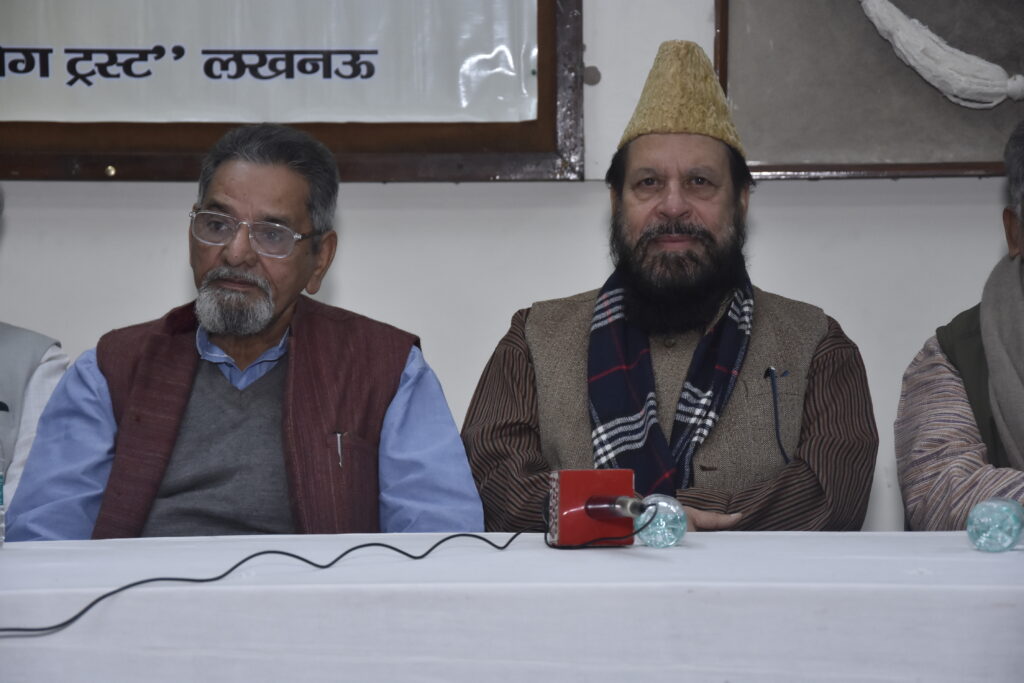
After a quick glance, I realized that no book has been written in Urdu or Hindi so far that is entirely based on the subject of the history of India’s independence and comprehensively examines all the ups and downs of the struggle for freedom of our beloved country, while paying attention to aspects that have generally been overlooked by previous historians. The review of the history of the struggle for India’s independence is not limited to just an introduction to Qadri Sahib’s research articles, but becomes a written document that informs the current generation of the sacrifices made by their ancestors for this great country and instills in them the pride to say that we may have compromised, but we never sold our conscience and dignity. Today, the atmosphere of the country is not hidden from anyone. Those sectarian organizations that were at the forefront of helping the British during the war of independence are now in power, and they have forgotten the sacrifices of millions of selfless Muslim freedom fighters who liberated the country, and have begun systematic conspiracies to remove the records of their sacrifices from the pages of history books in order to turn this lie into the truth.
The media is being used for this purpose. Through the media, efforts are being made to portray Muslims as traitors to the country. Such an atmosphere cannot be countered with mere rhetoric; in response, Qadri Sahib has laid a foundation based on research and references in this book, establishing a monument to the martyrs of the struggle for independence that will stand tall against all previously presented lists.

This book covers the political review of the struggle for India’s independence from 1857 to 1947. The various twists and turns, both visible and hidden, that Indian politics took over ninety years are all illuminated in this book. Syed Shah Nawaz Ahmad Qadri has beautifully condensed the long and diverse political journey of 90 years into a comprehensive review of the struggle for India’s independence, which is commendable. This book speaks for itself, presenting the past history with honesty. When writing about history, whether of any country or era, there is a significant risk of the author becoming biased, and when the history involves the performance and sacrifices of one’s own nation in its struggle for independence, there is the added concern of getting lost in emotions. However, the author has written the history of his beloved country’s struggle for independence in this book in such a manner that his approach is neither biased nor emotional. This quality is the success of this book. This book is indeed a valuable addition to the treasure trove of history books. In this book, a new mixed language of Hindi and Urdu has been used. Certainly, no one has used this kind of Hindustani language before. The author may be new to this field, but his political and social personality needs no introduction. Having started his political journey as a student under the leadership of the famous socialist leader Late Lok Bandhu Raj Narain, he has been consistently working for social and national issues. He never compromised on principles nor bowed down to anyone. The author has made raising his voice against oppression and injustice and launching movements as needed the purpose of his life.
In the continuous struggle against oppression and injustice inflicted upon the marginalized, significant work has been done through protests, sit-ins, demonstrations, long marches, hunger strikes, arrests, and other means to secure justice for the disadvantaged and to draw the government’s attention to their plight. The commitment to fight democratically in cases like the 1972 police brutality in Banaras, one-sided atrocities in the riots of Muzaffarnagar-Hashimpura Meerut, police firing at the Eidgah in Moradabad, and police excesses in Haldwani, Uttarakhand is noteworthy and commendable. In addition, events like the arrest of students involved in the Banaras Hindu University movement after the President’s house siege, and breaking the British law in Shimla’s Ridge Maidan to go to jail have elevated Bhai Shah Nawaz Qadri’s name to the top tier.

This mujahid (fighter) who has been imprisoned countless times in the struggle should have been guarding social and national rights from within a parliamentary lawmaking assembly, but the nation’s political insensitivity squandered that opportunity. The unprincipled politics of the present and the cunning plan to change the government’s history in power have turned a political fighter into an author. It was Qadri Sahib’s foresight that he exposed the government’s conspiracy in time and crafted such an appropriate literary response that will be remembered for centuries and will inspire others as well.
ہم خون کی قسطیں تو کئی دے چکے لیکن
اے خاک وطن، قرض ادا کیوں نہیں ہوتا؟